|
|
|
|
| |
|
Editor's note
|
|
Dingoes increase cattle yields, mountain lions reduce car crashes and vultures eat organic waste: this week we learnt that like them or not, predators help humans. A group of Australian researchers pulled together the recent studies across the globe looking at the services predators and scavengers can provide, and it makes for a fascinating read. Say, did you know if mountain lions were recolonised in the eastern US, they would prey on enough deer to reduce deer-vehicle collisions by 22% a year. This would save 150 lives and more than
US$2 billion in damages.
And if you’re thinking of handing your little one an iPad this weekend, here’s a few hints to help their posture, eyesight and sleep. In this piece, two early childhood experts explain the things that should be included in screen guidelines for students.
|
Molly Glassey
Newsletter Editor
|

|
|
Energy + Environment
|
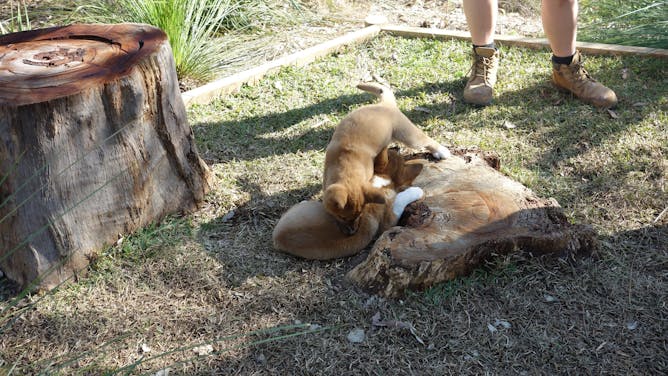
Whoosa vicious helpful predator? You are! Yes you are!
Sean Riley/Flickr
Christopher O'Bryan, The University of Queensland; Eve McDonald-Madden, The University of Queensland; James Watson, The University of Queensland; Neil Carter, Boise State University
Dingoes increase cattle yields, mountain lions reduce car crashes and vultures eat organic waste: like them or not, predators help humans.
|
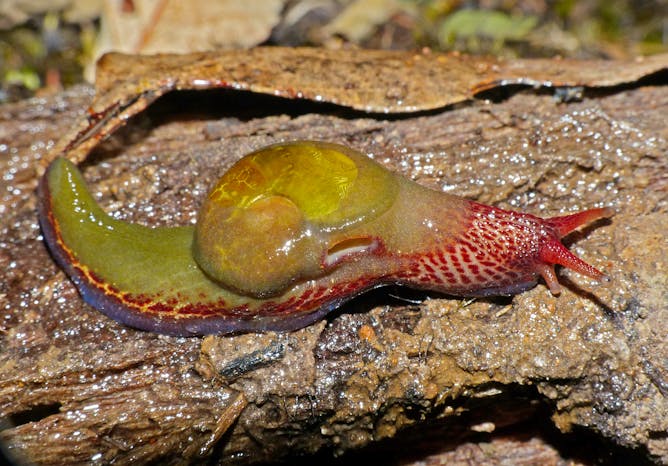
Attenborougharion rubicundus is one of more than a dozen species named after the legendary naturalist Sir David Attenborough.
Simon Grove/Tasmanian Museum and Art Gallery
Kevin Thiele, University of Western Australia
Scientists have been naming species after well-known people since the 18th century, often in a bid for publicity. But the issue deserves attention – 400,000 Australian species are yet to be described.
|
Education
|

Current guidelines state students aged five to 18 shouldn’t be spending more than two hours per day engaged in electronic media for entertainment.
Shutterstock
Brendon Hyndman, Charles Sturt University; Noella Mackenzie, Charles Sturt University
Guidelines for screen use for students need to take more than just time into account. Sleep, eye health, posture and other wellbeing issues need consideration as well.
|
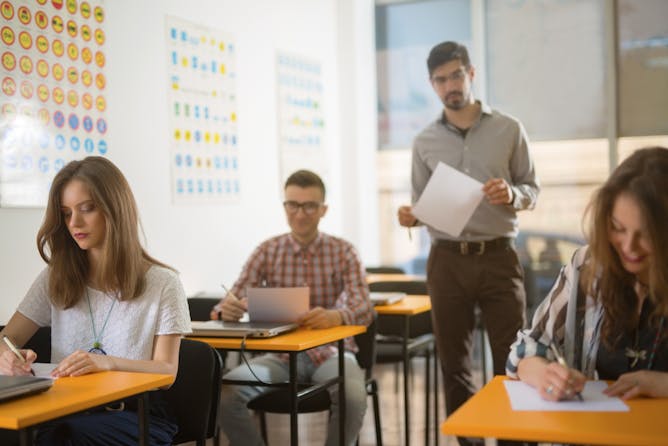
There are now several new gate-keeping measures to test teacher quality introduced by universities in the last two to three years.
Shutterstock
Melissa Barnes, Monash University; Russell Cross, University of Melbourne
Australia's decline in PISA rankings and criticisms of NAPLAN tell us we should also be looking at how we assess teacher quality.
|
GetFacts
|

Sign up for The Conversation’s new email alert.
Molly Glassey, The Conversation; Jesse Burns, The Conversation
GetFacts delivers evidence-based clarification straight from the academic's mouth straight to your inbox.
|
Cities
|
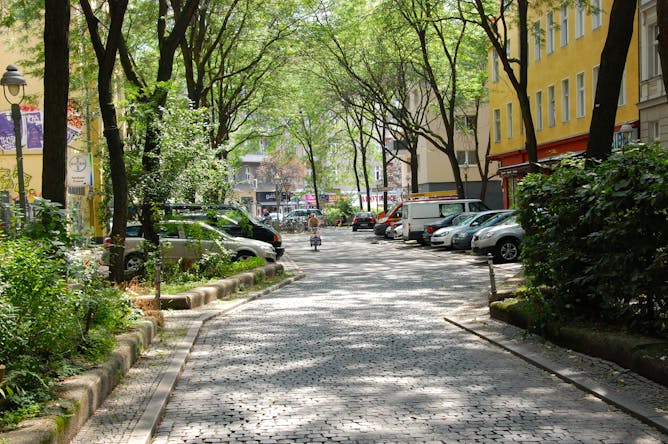
Originating in the Netherlands, the concept of ‘woonerfs’, areas designed to invite walking, playing, socialising and cycling while curbing motor vehicles, has spread to cities in other countries, including Berlin.
Eric Sehr/Flickr
Jenny Donovan, La Trobe University
All around us, the places we inhabit send us physical and visual cues that influence our behaviour. Good design can tilt the balance so our surroundings help us act in ways that fulfil our needs.
|
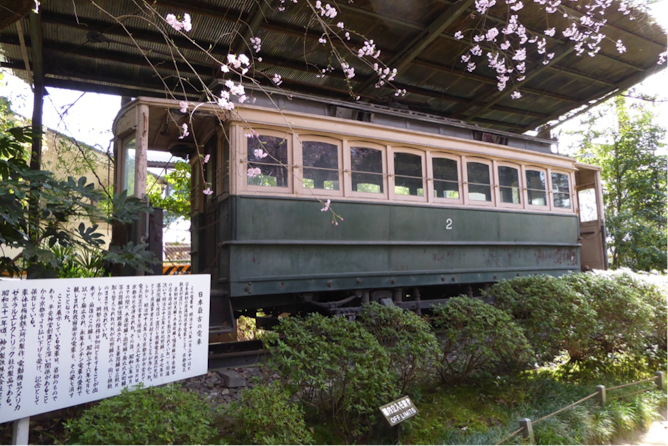
Remnants of the tram system can be found across Kyoto. Japan’s oldest tram is in the gardens of Heian Shrine in central Kyoto.
Brendan F.D. Barrett, Osaka University
In the 1970s, both Kyoto and Melbourne made fateful decisions about their transport networks. Melbourne today enjoys the benefits of trams, while Kyoto lives with the consequences of losing them.
|
Business + Economy
|

A press conference in front of the Starbucks in Center City Philadelphia, USA, where two black men were arrested on April 16, 2018.
Bastiaan Slabbers/EPA
Victor Sojo, University of Melbourne; Melissa A. Wheeler, University of Melbourne
That Starbucks will close all US stores for 'unconscious bias training' may seem progressive, but one afternoon training session for staff will not overcome racism in the longer term.
|
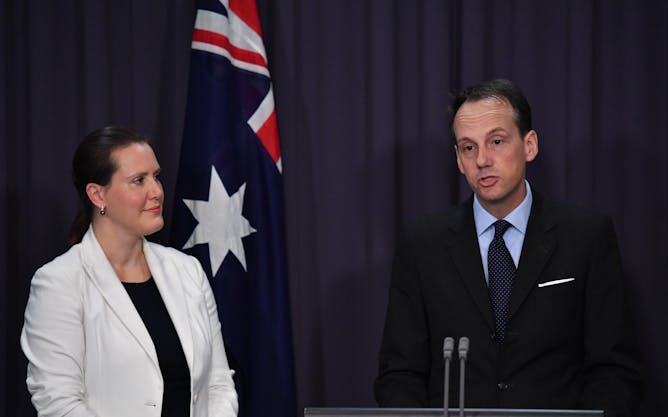
Australian Securities & Investments Commission (ASIC) chairman James Shipton has come under fire for inaction on bad bank behaviour.
Mick Tsikas/AAP
Elise Bant, University of Melbourne
Even when ASIC has been sufficiently resourced to pursue litigation, the Australian courts have contributed to an environment where contravening behaviour is a rewarding option.
|
Politics + Society
|
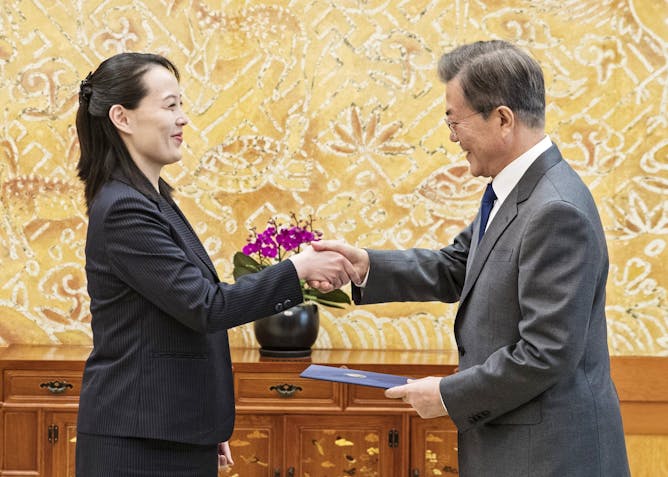
South Korean President Moon Jae-in meets North Korean leader Kim Jong-un’s sister, Kim Yo-jong, in Seoul in February this year.
AAP/Yonhap
Benjamin Habib, La Trobe University
The end of denuclearisation politics has opened new possibilities for the direction of the Korean Peninsula, but the tensions of 2017 remind us of the possibility of disaster.
|
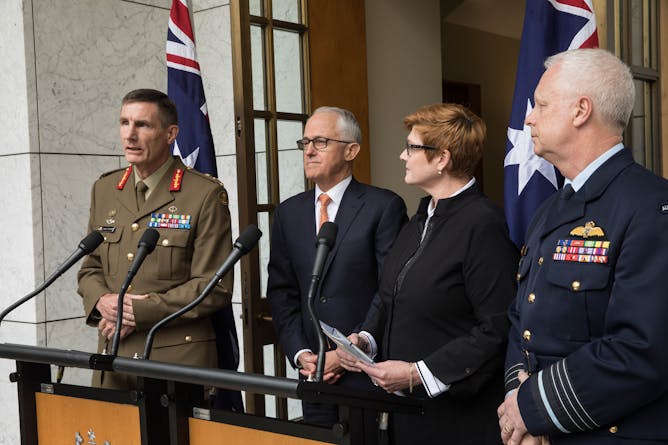
The incoming head of the Australian Defence Force, Lt-Gen Angus Campbell (left), understands the importance of Australia’s relations with its nearest neighbours.
AAP/Andrew Taylor
John Blaxland, Australian National University
The incoming Chief of the Defence Force, Angus Campbell, will need to focus his attentions on an array of conventional and non-conventional security concerns in the Indo-Pacific.
|
Arts + Culture
|
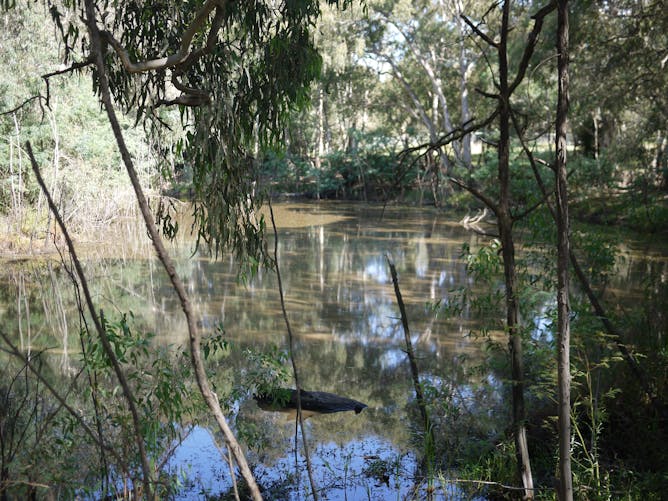
Before the outsiders arrived in Wurundjeri country this billabong enjoyed a vital ecological connection with other waterways.
Author provided
Tony Birch, Victoria University
At 14, writer Tony Birch had rarely travelled two miles out of the centre of Melbourne. Encountering a billabong on the Birrarung River was the first time that country spoke to him.
|
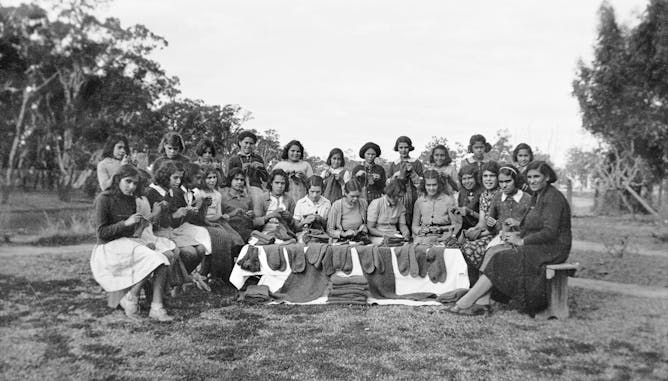
Yorta Yorta women and girls at the Cummeragunja Reserve in NSW with their knitting for soldiers serving in the second world war.
Australian War Memorial: P01562.001
Kristyn Harman, University of Tasmania
During the second world war, a young Aboriginal soldier, Private Clarrie Combo from New South Wales, exchanged mail with Mrs F. C. Brown from Loxton, South Australia — a white woman whom he had never met…
|
Health + Medicine
|
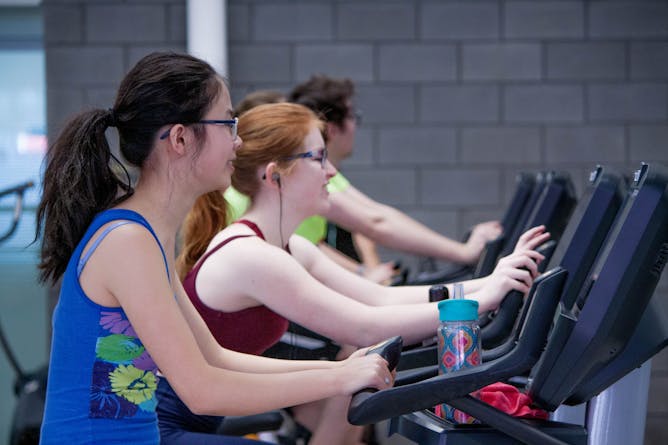
The best time is the time you’ll actually do it.
trust tru katsande unsplash
Paige Brooker, The University of Queensland; Michael Leveritt, The University of Queensland; Neil King, Queensland University of Technology; Sjaan Gomersall, The University of Queensland
Our body burns more fat when we exercise before breakfast, but studies haven't found that means we lose more weight over time.
|
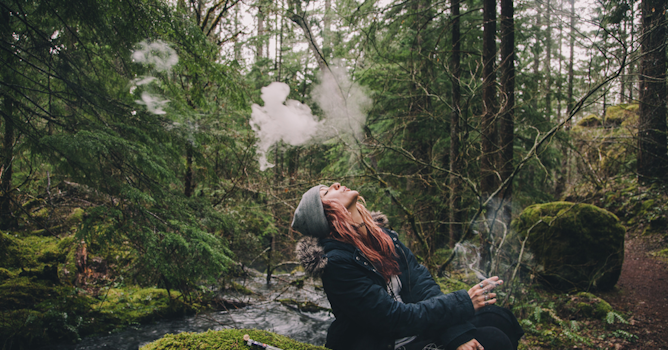
Only certain compounds in cannabis are at fault.
from www.shutterstock.com
Jerome Sarris, Western Sydney University; Joe Firth, Western Sydney University
Cannabis use is linked to psychosis, but only a small number of users will experience it.
|
Science + Technology
|
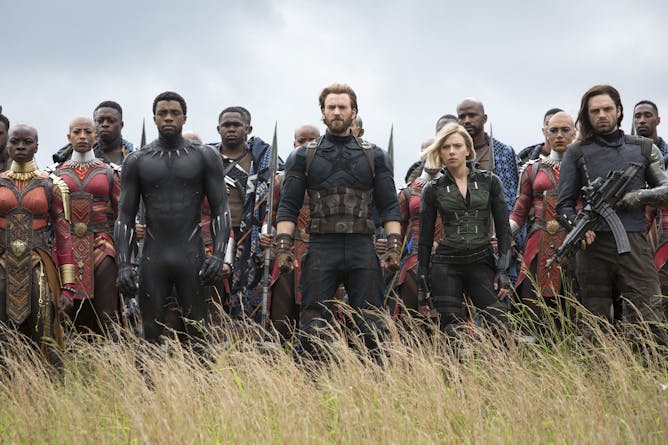
The biggest collection of Marvel heroes ever to hit the cinema screen (so far).
Marvel
Michael Milford, Queensland University of Technology
Avengers: Infinity War is the biggest Marvel movie ever with largest cast of superheroes (and villains). So far. But how does the science stack up?
|
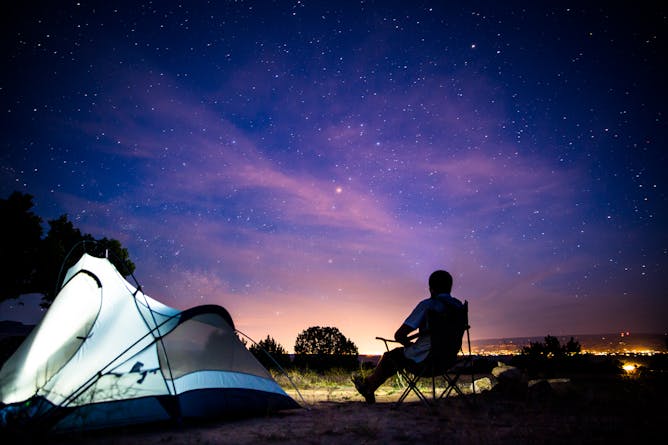
It’s impossible to separate science from wonder.
zachd1_618/flickr
Peter Ellerton, The University of Queensland; Deborah Brown, The University of Queensland
Let's get emotional about science. Not just to celebrate it, but because that's how to do it properly.
|
| |
Featured jobs
|

|
Swinburne University of Technology — Hawthorn, Victoria
|

|
University of Western Australia — Perth, Western Australia
|

|
Griffith University — Bundall, Queensland
|

|
University of Melbourne — Parkville, Victoria
|
|
|
|
Featured events
|

|
Doltone House, Jones Bay Wharf, Pyrmont, Sydney, New South Wales, 2009, Australia — Australasian Hydrographic Society
|
|
|
PO Box 1371, Mitcham North, Victoria, 3132, Australia — Australian Society for Immunology
|

|
Schulz Building Level 6, The University of Adelaide, Adelaide SA 5005, Adelaide, South Australia, 5005, Australia — University of Adelaide
|

|
The Auditorium (Ground Floor), Peter Doherty Institute of Infection and Immunity, 792 Elizabeth Street, Melbourne, Melbourne, Victoria, 3000, Australia — The Peter Doherty Institute for Infection and Immunity
|
|
|
|
| |
| |
| |
| |
| |
|
|
|
|
|
|
|